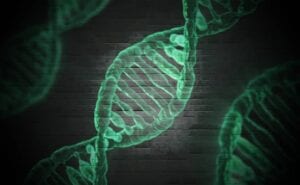Tyrosinemia (TYR)
What is tyrosinemia (TYR)?
Tyrosinemia (TYR) is a serious, inherited metabolic disorder that inhibits the body’s ability to process or break down essential amino acids found in common foods. Tyrosine is a type of amino acid and is a core component of protein; without being able to process protein, and without treatment, toxic levels of tyrosine rapidly spread throughout the body, causing significant health challenges that can result in death. Presently, there are three basic kinds of hereditary tyrosinemia, characterized by certain symptoms:- Tyrosinemia Type 1: This type is acute and attacks during infancy. Because these children can’t process proteins in food, toxicity develops. They experience bouts of gastrointestinal problems, severe diarrhea, and the inability to hold food down. Depending on the severity of type 1 TYR, some children become jaundiced, emit a strange odor, develop rickets, and may experience kidney dysfunction, tingling sensations in the extremities, and or changes in behavior and mood among other symptoms.
- Tyrosinemia Type 2: Like type 1, type 2 tyrosinemia can affect changes in mood and behavior, cause other cognitive and developmental problems, and change skin and light sensitivities. Additionally, some patients experience discomfort in their eyes as well as skin hardening in their extremities.
- Tyrosinemia Type 3: Type 3 is largely the most uncommon type of TYR. It is characterized by cognitive issues, increased frequency of seizures, vertigo, and gait problems.
What are the symptoms of TYR?
Tyrosinemia can impact nearly every part of the body directly, or indirectly, when the body’s tissues and organs are affected. See the specific types of TYR listed above for more specific symptoms of the condition.How do people get TYR?
Since this is a genetic disease, it’s not possible to “catch it” by coming into contact with another patient or carrier. Instead, the genetic mutation associated with TYR disorder is passed on from parents to their children. While both parents are carriers, they typically remain largely asymptomatic.What treatment options are available for TYR?
If a doctor is unfamiliar with tyrosinemia, his or her attempt to treat the symptoms of TYR will be futile unless the underlying cause is addressed. Upon testing positive for tyrosinemia, it is important for parents to consult with a healthcare team of specialists, which should also include a licensed dietician, to determine which course of treatment might be best for their child. In many cases, the overall treatment plan may include a special combination of diet and medication, which in all likelihood, may need to be followed indefinitely.Where can I find more information about tyrosinemia (TYR)?
Tyrosinemia (TYR) Articles

Castle Creek Biosciences Expands Their Cell and Gene Therapy Platform By Acquiring Novavita Thera Inc.
Alyssa Stevens
January 21, 2022
Read More »

The Network of Tyrosinemia Celebrates 4th Annual NOTA Experience Family Conference
Trudy Horsting
October 1, 2021
Read More »



Don’t Miss This Virtual Event for the Tyrosinemia Community
James Moore
September 18, 2020
Read More »

Advances and Setbacks in CRISPR Genome Editing and Base Editing for Tyrosinemia
Patient Worthy Contributor
July 29, 2020
Read More »

India Has Introduced a New Rare Disease Policy Draft, But it Doesn’t Benefit all Rare Patients
Trudy Horsting
January 30, 2020
Read More »

Attention Tyrosinemia Community Families: Come Together for Event in Late September
Jean Martell
September 9, 2019
Read More »



